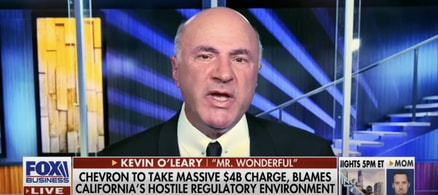Write a will
While having a will in place won’t protect your loved ones from the emotional distress of your passing, getting your basic documents in place can shield them from any extra financial anxiety, stress and uncertainty.
A will is the bedrock of a strong estate plan. While the laws governing these documents vary by state, there are several basic elements that should be included:
- Personal information: You should include your full legal name (and any other aliases you go by), date of birth, address and the names of your immediate family.
- Last will and testament language: Also known as testamentary intent, this legal language declares that your document is a valid will that should be carried out.
- Assets: Since your will details who gets which of your belongings after you die, you should list any money, personal belongings, real estate and other high-value assets that you want to distribute.
- Beneficiaries: Your beneficiaries are the people who will receive your assets when you die. They can be your family members, friends, charities, businesses, or even a trust — but you need to be specific about who gets what.
- Executor: You should pick someone to carry out the terms of your will and manage any unresolved affairs, like paying bills and taxes. If you don’t name an executor, someone will have to apply to handle your estate via probate court, or the court will name an executor.
- Guardianship: If you have children under the age of 18 or any disabled or elderly dependents, you can appoint them a legal guardian.
- Signatures: You’ll need to sign your will and most states also require witness signatures. And remember, you should update your will as your life changes, like say you get married, divorced or become a parent.
You can get help from an estate lawyer but it comes at a cost. On average, a flat fee for a simple will ranges between $300 to $400, according to Willful, but the fee can climb beyond $1,000 if your will is complex.
Meet Your Retirement Goals Effortlessly
The road to retirement may seem long, but with WiserAdvisor, you can find a trusted partner to guide you every step of the way
WiserAdvisor matches you with vetted financial advisors that offer personalized advice to help you to make the right choices, invest wisely, and secure the retirement you've always dreamed of. Start planning early, and get your retirement mapped out today.
Get StartedTrust in trusts
Buffett has made use of trusts — including the testamentary trust his three children must administer after his death — and so can you.
One way to save your loved ones from potential financial and legal woes is to put all of your assets — including your bank accounts, investments, life insurance and real estate — into a living trust, or revocable living trust, and name your children or loved ones as the beneficiaries of that trust.
A living trust allows you to manage your assets in your own name for as long as you’re able. The word “revocable” means the trust can be undone or changed.
You’ll have to name a “successor trustee” — which can be a family member, friend, a private fiduciary or even a bank — who can take over managing your assets in case of reduced mental faculties or death.
You can amend or change a revocable living trust at any time. Any income earned by the trust's assets goes to you and is taxable, but the assets themselves don’t transfer from the trust to your beneficiaries until you die.
The key benefit of setting up a trust like this is that your beneficiaries can avoid probate, which is the costly and time-consuming process, often in court, of transferring assets when someone dies.
Consult with a professional
Estate planning is complex. Even with the best intentions, you could easily miss something that will increase the burden on your family members and beneficiaries when you pass away.
To ensure all the necessary boxes are ticked, consider connecting with an accountant and lawyer to help you take a true inventory of your assets and possessions and draw up the necessary legal documents to allow for the swift distribution of your assets.
If your estate is sizable, you may also want to consider working with a tax professional as part of your estate planning process. They can help you plan for taxes, determine whether or not you will incur taxes based on where you live and mitigate the taxes your beneficiaries pay.
Finally, talk your estate plan through with your loved ones. As Buffett noted, he didn’t feel his kids were ready for the responsibility of administering his will nearly 20 years ago, but he’s now confident that the three will “act unanimously.”
Sponsored
Follow These Steps if you Want to Retire Early
Secure your financial future with a tailored plan to maximize investments, navigate taxes, and retire comfortably.
Zoe Financial is an online platform that can match you with a network of vetted fiduciary advisors who are evaluated based on their credentials, education, experience, and pricing. The best part? - there is no fee to find an advisor.






